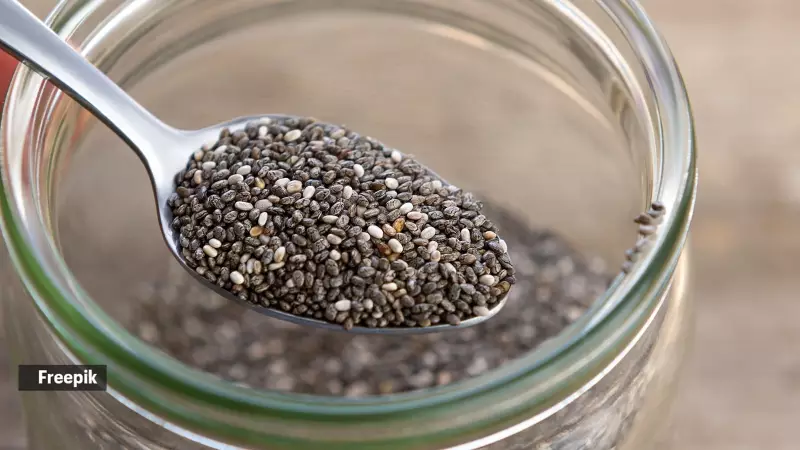
Chia seeds have taken the health and wellness world by storm, earning their reputation as a nutritional powerhouse. These tiny black seeds are packed with fiber, protein, and omega-3 fatty acids, making them a favorite among health enthusiasts across India. However, recent medical insights suggest that this superfood might not be suitable for everyone.
The Hidden Dangers of Chia Seeds You Need to Know
While most people can safely incorporate chia seeds into their diet, certain individuals face potential health complications that could turn this beneficial food into a health hazard. Here are five groups who should exercise caution:
1. People with Swallowing Difficulties or Esophageal Issues
Chia seeds possess a unique property – they can absorb up to 27 times their weight in water, forming a gel-like substance. For individuals with pre-existing swallowing difficulties or esophageal conditions, this gel can create a significant obstruction in the throat or esophagus. The risk is particularly high when consuming dry chia seeds followed by liquids, as they can expand rapidly in the esophagus.
2. Individuals with Digestive Disorders
If you suffer from inflammatory bowel diseases like Crohn's disease or ulcerative colitis, chia seeds might exacerbate your symptoms. The high fiber content, while beneficial for most people, can trigger bloating, gas, and abdominal discomfort in those with sensitive digestive systems. The sudden increase in fiber intake can overwhelm an already compromised digestive tract.
3. People on Blood Pressure Medications
Chia seeds are known for their potential to lower blood pressure naturally. While this sounds beneficial, it can be dangerous for individuals already taking antihypertensive medications. The combined effect could potentially cause blood pressure to drop to dangerously low levels, leading to dizziness, fainting, and other complications.
4. Those with Specific Food Allergies
Although rare, some individuals may develop allergic reactions to chia seeds. Symptoms can range from mild skin rashes and hives to more severe reactions like breathing difficulties. If you have known allergies to similar seeds like mustard or sesame seeds, you might want to exercise extra caution when trying chia seeds for the first time.
5. People Taking Blood Thinners
The high omega-3 fatty acid content in chia seeds acts as a natural blood thinner. When combined with prescription blood thinners like warfarin, this could potentially increase the risk of bleeding and bruising. It's crucial for individuals on such medications to consult their healthcare provider before adding chia seeds to their regular diet.
Safe Consumption Practices for Chia Lovers
If you don't fall into these risk categories but still want to enjoy chia seeds safely, consider these tips:
- Always soak chia seeds for at least 30 minutes before consumption
- Start with small quantities (about one tablespoon) and monitor your body's response
- Drink plenty of water throughout the day when consuming chia seeds
- Consult with a nutritionist or healthcare provider if you have any underlying health conditions
Remember, even the healthiest foods require mindful consumption. What works wonders for one person might not suit another. The key is to understand your body's unique needs and respond accordingly.
Before making any significant changes to your diet, especially if you have pre-existing health conditions, it's always wise to seek professional medical advice. Your health journey should be about finding what truly works for your body, not just following the latest food trends.





